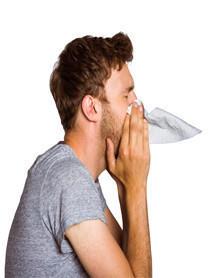Dry Mouth After Anesthesia

Dry mouth, also known as xerostomia, is a common side effect that many patients experience after undergoing anesthesia. This condition can be uncomfortable and may lead to a range of issues, including difficulty swallowing, speaking, and eating. In this article, we will delve into the world of dry mouth after anesthesia, exploring its causes, symptoms, and management strategies.
Understanding Anesthesia-Induced Dry Mouth
Anesthesia works by suppressing the body’s natural responses, including the production of saliva. Saliva plays a crucial role in maintaining oral health, as it helps to neutralize acids, remineralize teeth, and wash away bacteria. When anesthesia is administered, it can disrupt the normal functioning of the salivary glands, leading to a decrease in saliva production. This reduction in saliva production can result in dry mouth, which can be uncomfortable and may increase the risk of oral health problems.
Causes of Dry Mouth After Anesthesia
Several factors contribute to the development of dry mouth after anesthesia. These include:
- Type of anesthesia: Certain types of anesthesia, such as general anesthesia, are more likely to cause dry mouth than others, like local anesthesia.
- Duration of anesthesia: The longer the anesthesia is administered, the higher the risk of dry mouth.
- Age: Older adults are more prone to dry mouth due to age-related changes in the salivary glands.
- Medications: Certain medications, such as antihistamines and decongestants, can exacerbate dry mouth.
- Dehydration: Inadequate fluid intake before, during, or after surgery can contribute to dry mouth.
Symptoms of Dry Mouth After Anesthesia
The symptoms of dry mouth after anesthesia can vary in severity and duration. Common symptoms include:
- Dry, sticky feeling in the mouth
- Thick, stringy saliva
- Difficulty swallowing (dysphagia)
- Difficulty speaking (dysarthria)
- Hoarseness or throat pain
- Increased risk of tooth decay and gum disease
- Bad breath (halitosis)
Management Strategies for Dry Mouth After Anesthesia
Fortunately, there are several management strategies that can help alleviate dry mouth after anesthesia. These include:
- Staying hydrated: Drinking plenty of water before, during, and after surgery can help maintain saliva production.
- Saliva substitutes: Using saliva substitutes, such as mouthwashes or sprays, can help moisturize the mouth and relieve dryness.
- Humidifiers: Using a humidifier in the recovery room or at home can help add moisture to the air and reduce dry mouth.
- Sugar-free gum or candy: Chewing sugar-free gum or sucking on sugar-free candy can stimulate saliva production and help relieve dry mouth.
- Good oral hygiene: Practicing good oral hygiene, including brushing and flossing regularly, can help prevent oral health problems associated with dry mouth.
Preventing Dry Mouth After Anesthesia
While it’s not possible to completely prevent dry mouth after anesthesia, there are steps that can be taken to reduce the risk. These include:
- Staying hydrated: Drinking plenty of water before, during, and after surgery can help maintain saliva production.
- Avoiding certain medications: Avoiding medications that can exacerbate dry mouth, such as antihistamines and decongestants, can help reduce the risk.
- Using a humidifier: Using a humidifier in the recovery room or at home can help add moisture to the air and reduce dry mouth.
- Practicing good oral hygiene: Practicing good oral hygiene, including brushing and flossing regularly, can help prevent oral health problems associated with dry mouth.
Conclusion
Dry mouth after anesthesia is a common side effect that can be uncomfortable and may lead to oral health problems. Understanding the causes, symptoms, and management strategies for dry mouth can help patients and healthcare providers work together to alleviate this condition. By staying hydrated, using saliva substitutes, and practicing good oral hygiene, patients can reduce the risk of dry mouth and promote a smooth recovery.
How long does dry mouth last after anesthesia?
+Dry mouth after anesthesia can last from a few hours to several days. In most cases, saliva production returns to normal within 24-48 hours. However, in some cases, dry mouth can persist, and patients may need to seek further guidance from their healthcare provider.
Can I prevent dry mouth after anesthesia?
+While it’s not possible to completely prevent dry mouth after anesthesia, there are steps that can be taken to reduce the risk. These include staying hydrated, avoiding certain medications, using a humidifier, and practicing good oral hygiene.
What are the complications of dry mouth after anesthesia?
+The complications of dry mouth after anesthesia can include difficulty swallowing, speaking, and eating, as well as an increased risk of tooth decay and gum disease. If left untreated, dry mouth can lead to more severe oral health problems, such as tooth loss and oral infections.